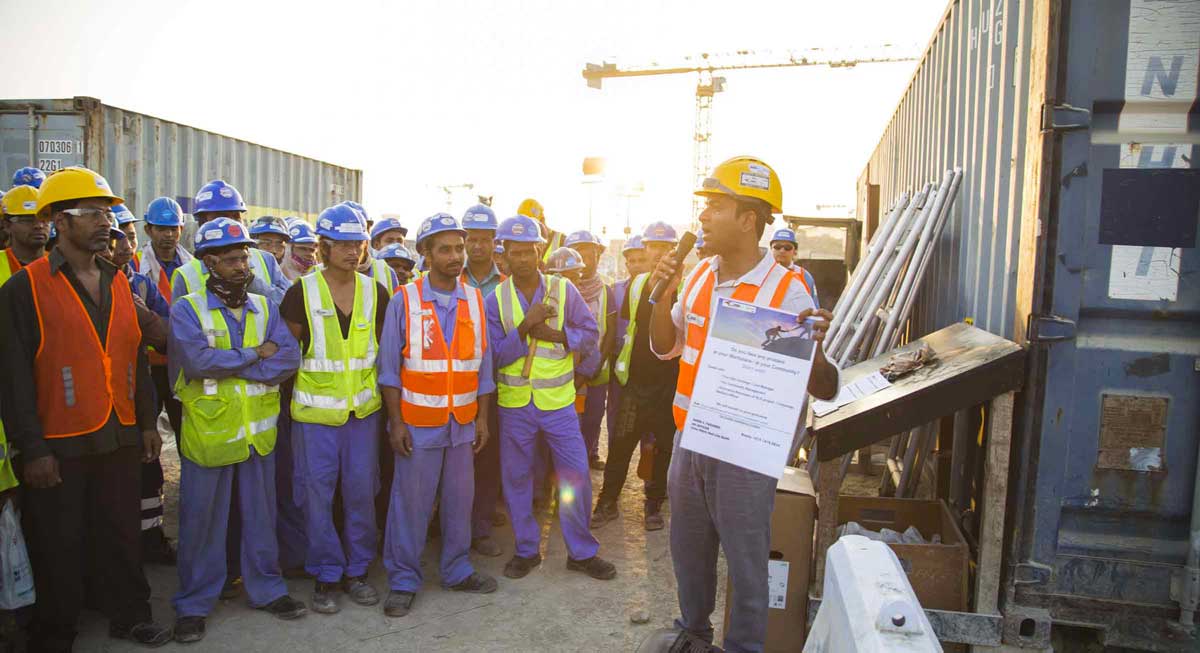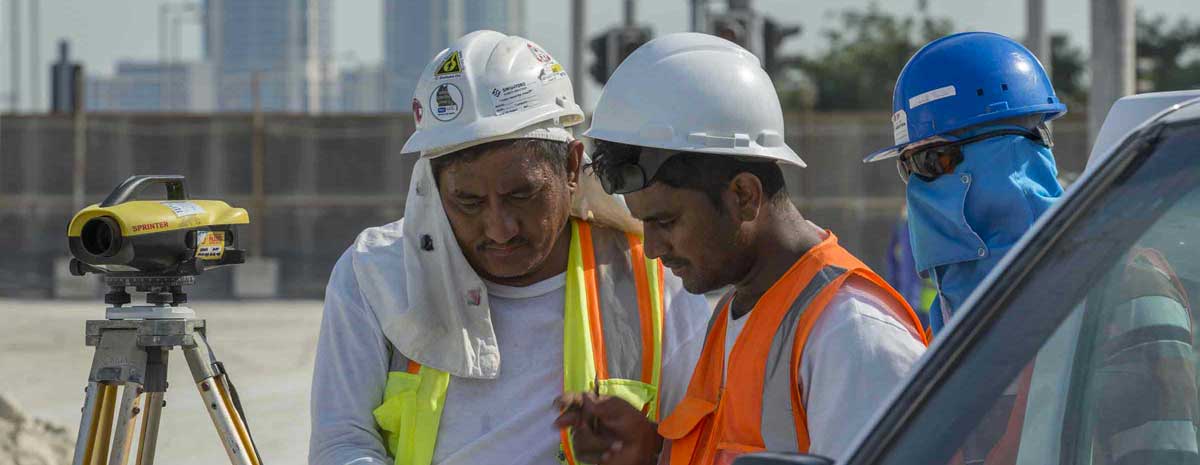
At a time when few businesses were aware of the risks of forced labour involved in the recruitment practices in the region, QDVC put in place measures to adequately protect workers.
QDVC is one of the rare companies to work directly with recruitment agencies in workers’ home countries, rather than relying on a string of intermediaries in Qatar. The recruitment policy implemented by QDVC has always complied with the Employer Pays Principle. Each contract clearly states that the costs of recruitment are borne by the employer and that no fees are charged to workers as part of the recruitment process. Despite this, in 2014 as part of an extensive survey of workers, it was observed that workers were still required to pay fraudulent recruitment fees to intermediaries and recruitment agencies in their country of origin. A series of additional measures was put in place immediately.
QDVC thereby bolstered preliminary checks of its partners and recruitment agencies. With their support, it conducted a more in-depth analysis of recruitment costs. QDVC voluntarily decided to increase the service fees paid to its most reliable partners in an effort to dissuade unethical practices and seek to cover any potential costs of resignation and/or early repatriation of workers, which are often overlooked by companies and agencies operating in the Gulf.
At the same time, QDVC took extra steps to ensure workers are systematically informed of their rights at the start of the recruitment process. In this way, QDVC amplified its direct involvement at every stage of the recruitment process, in particular by sending its own people and technical teams to workers’ home countries to check partners are complying with its standards, taking part in recruitment interviews and aptitude tests, as well as communicating directly with candidates about the lack of recruitment fees.
QDVC verified the effectiveness of these measures, especially by surveying workers and participating in a study on ethical recruitment conducted by the New York University Stern Center for Business and Human Rights.
Using the information provided by QDVC as well as interviews with workers, managers, temporary work agencies and subcontractors, the report acknowledged the effectiveness of the measures put in place and estimated that the “QDVC standard represents the most responsible recruitment practice that currently exists in the industry”, thereby endorsing its approach and suggesting it would work at other construction companies.
The New York University Stern report acknowledged that the QDVC standard represents the most responsible recruitment practice that currently exists in the industry
QDVC has continued its efforts, particularly regarding the recruitment practices of its temporary work agencies, through a partnership with the International Labour Organization in Qatar signed in May 2018 with the objective of developing a migration corridor between Qatar and Bangladesh, with no recruitment fees for workers.
Following an initial audit conducted by the NGO Verité, a programme to build the capabilities of recruitment and staffing agencies in Qatar and in workers’ home countries was put in place. Several monitoring and support activities were organised in Dhaka and Doha.
The three-year project enabled QDVC to share its policy, its tools and best practice with recruitment and staffing agencies and align them with the ILO General principles for fair recruitment published in 2019. At the same time, Tufts University was mandated to conduct an independent impact assessment of the pilot project by carrying out an in-depth survey involving 343 workers at various stages of the recruitment process and during their employment.
The assessment found that the pilot project led to a “massive drop in the average recruitment fees and related costs paid by workers”. It also served to “substantially reduce deceptive practices and led to an effective grievance mechanism” in these agencies. While the majority of workers had debt related to migration before the pilot project, 93% of workers who arrived in Qatar after the measures taken by QDVC and the ILO confirmed they had no such debt.

Currently, the ILO and the Ministry of Administrative Development, Labour and Social Affairs of Qatar (ADLSA) are implementing a similar project to promote responsible recruitment in the hospitality sector, which draws on the learnings from the QDVC pilot project. A series of workshops and working groups are currently being organised to extend these efforts to other industries, countries and corridors.
Recruiting migrant workers remains complex, yet QDVC and VINCI continue to take measures to improve practices. It was identified as the first of five main issues set out in the VINCI Duty of Vigilance Plan . Guidelines and tools are rolled out and made available to all entities and employees. Similarly, VINCI has sustained its efforts with all parties involved, including businesses, international organisations, professional bodies and civil society organisations.
Read also: VINCI’s operations in Qatar
Read also: Employment and living conditions
